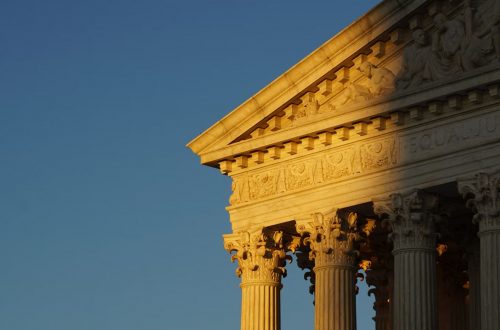 The head of Venezuela’s presidential guard was with Hugo Chávez during his final moments. His report on Chávez’s last words paints a picture of a man desperately clinging to life. According to this report, Chávez said:
The head of Venezuela’s presidential guard was with Hugo Chávez during his final moments. His report on Chávez’s last words paints a picture of a man desperately clinging to life. According to this report, Chávez said:
I don’t want to die. Please don’t let me die.
As a rule, I’m no fan of socialist dictators—particularly those of Chávez’s ilk. But this strikes me as one of the saddest things I’ve ever read. I grieve to think about what the horror of his final moments must have been like. Death is no respecter of persons—not even of billionaire Presidents who command a cult-like following among their countrymen. Not even of you. As the old hymn has it, “Time like an ever-flowing stream bears all its sons away.” None of us will escape this great equalizer.
But the great question we all have to ask ourselves is this: Will we be ready? Will our last words exhibit the desperation of a person who knows that it is all slipping away? Of a person who has the foreboding sense that something more terrible than he can imagine waits just on the other side? Or will our final words reflect the confidence that Christ has defeated the final enemy (1 Cor. 15:26)? The confidence that whoever trusts in Jesus Christ will live even if he dies (John 11:25)?
If the moment of your demise were descending upon you and you could see it coming as Chávez could, what would you say? That is the great question of your life. It’s the great question of every person’s life.
Psalm 90:10-12
10 As for the days of our life, they contain seventy years,
Or if due to strength, eighty years,
Yet their pride is but labor and sorrow;
For soon it is gone and we fly away.
11 Who understands the power of Thine anger,
And Thy fury, according to the fear that is due Thee?
12 So teach us to number our days,
That we may present to Thee a heart of wisdom.




10 Comments
Pingback:
Pingback:
Pingback:
Robert Stankey
‘ “He couldn’t speak but he said it with his lips … ‘I don’t want to die. Please don’t let me die,’ because he loved his country, he sacrificed himself for his country,” Gen. Jose Ornella told The Associated Press.’
The general must clearly be an expert lip reader.
Bart Shadle
As someone currently serving in Venezuela I just wanted to say that I think you’re understanding of Chavez’s motive for mouthing what he did is incorrect.
“Viva Chavez!” and “Soy Chavez” are two very typical signs we see just about everywhere we look in this country. It is inked on the arms of Venezuelans as well as grafitied all over walls and buses. Chavez, in a fairly real way, has embodied that “Bolivarian Revolution” that he has preached he was bringing to these people for so long. He is the revolution.
When he said (if indeed he said it) “I don’t want to die” I think probably his general’s interpretation is the better. He was saying, essentially, “Don’t let this revolution end. Keep carrying through my plans” much more than he was expressing any sort of fear or acting like a man “desperately clinging to life.” Chavez knew he was headed towards death. This was no surprise. That he was trying to preserve his legacy is far more probable than that he was fearfully terrorized by the prospect of his fast-approaching death.
This, perhaps, does not take the force away from your caution to be ready for our own end, but to assume Chavez faced his with fear and trembling is unfair. And to be clear, I am no Chavez fan, just somebody in tune with the way the guy thought.
Denny Burk
Hey, Bart. Thanks for this. You certainly would have a better read on this than I. Where did you read the general’s interpretation of Chavez’s words? Was it in the article I linked? Or did he elaborate elsewhere?
Bart Shadle
Yeah, Denny, it was in the article you linked. This is what it says:
“”He couldn’t speak but he said it with his lips … ‘I don’t want to die. Please don’t let me die,’ because he loved his country, he sacrificed himself for his country,” Gen. Jose Ornella told The Associated Press.”
I think reading that I assumed that the general was interpreting his words the same way I posited above. I think after reading it again, though, I’m open to other possibilities. Most likely we are both right. Impending death probably brings out all kinds of fears and motive for saying things. Chavez probably was simultaneously afraid of death and afraid of losing his legacy.
Denny Burk
When I first read the general’s remarks, I thought he was trying to spin Chavez words for a political purpose. I dismissed them as political propaganda. Unless there’s a record of Chavez interpreting his own words in such a political manner, I think I’ll stick by that first impression. I’m really skeptical of the general’s interpretation of Chavez’s last words.
James Stanton
One interesting thing is that abortion is illegal except in cases where the mother’s life is threatened in Venezuela and remained so during Chavez’ rule. He often claimed his policies were based on Jesus’ teachings. Bart could probably tell us a bit more about the state of Christianity in Venezuela under Chavez.
Pingback: